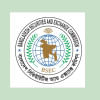Could lower policy rate if inflation is reduced: BB governor

The policy rate could be lowered within six months if inflationary pressure in the country is reduced to a tolerable level, Ahsan H Mansur, governor of the Bangladesh Bank, said today.
Mansur made this comment at a meeting with a delegation of the Dhaka Chamber of Commerce and Industry (DCCI) at the central bank headquarters in Dhaka.
The Bangladesh Bank increased the policy rate by 50 basis points to 9 percent on August 25 in an effort to combat persistently high inflation by making bank borrowing costlier.
Food inflation in the country crossed 14 percent for the first time in 13 years in July, with overall inflation rising by 1.94 basis points to 11.66 percent from the previous month.
This surge in inflationary pressure was brought on by nationwide supply chain disruptions following weeks of unrest that led to the fall of the Sheikh Hasina-led government on August 5.
Regarding the recent hike in policy rates, Mansur said it would be possible to reduce them within the next six or seven months if inflation is brought down to a tolerable level by then.
The policy rate, or repo rate, refers to the interest commercial banks must pay for borrowing from the central bank.
But although this will have the intended benefit of reducing the money supply, higher interest rates may slow down the flow of credit for cottage, micro, small-and-medium enterprises (CMSMEs), according to DCCI President Ashraf Ahmed.
"So, the central bank should instead facilitate financing for CMSMEs by accelerating several schemes for the sector," he said while leading the delegation at the meeting.
Ahmed also urged the central bank governor to ease the process for securing foreign trade credit and increase the credit flow of banks so that they can adequately fund CMSMEs.
In response, Mansur assured they would facilitate credit guarantee facilities for the sector.
He also emphasised the need to limit government borrowing from banks to increase the credit available for the private sector.
Furthermore, Mansur suggested it would be easier for local entrepreneurs to secure foreign trade credit if they improve their payment history in regards to loans.
He reiterated that they will soon form a banking commission, which will then devise the necessary roadmap for bringing stability to the country's financial sector.
Malik Talha Ismail Bari, senior vice president of the DCCI, Md Junaed Ibna Ali, vice president, and other members of the DCCI board were among the delegation.
Nurun Nahar and Md Habibur Rahman, deputy governors of the central bank, were also present.

 For all latest news, follow The Daily Star's Google News channel.
For all latest news, follow The Daily Star's Google News channel. 








Comments